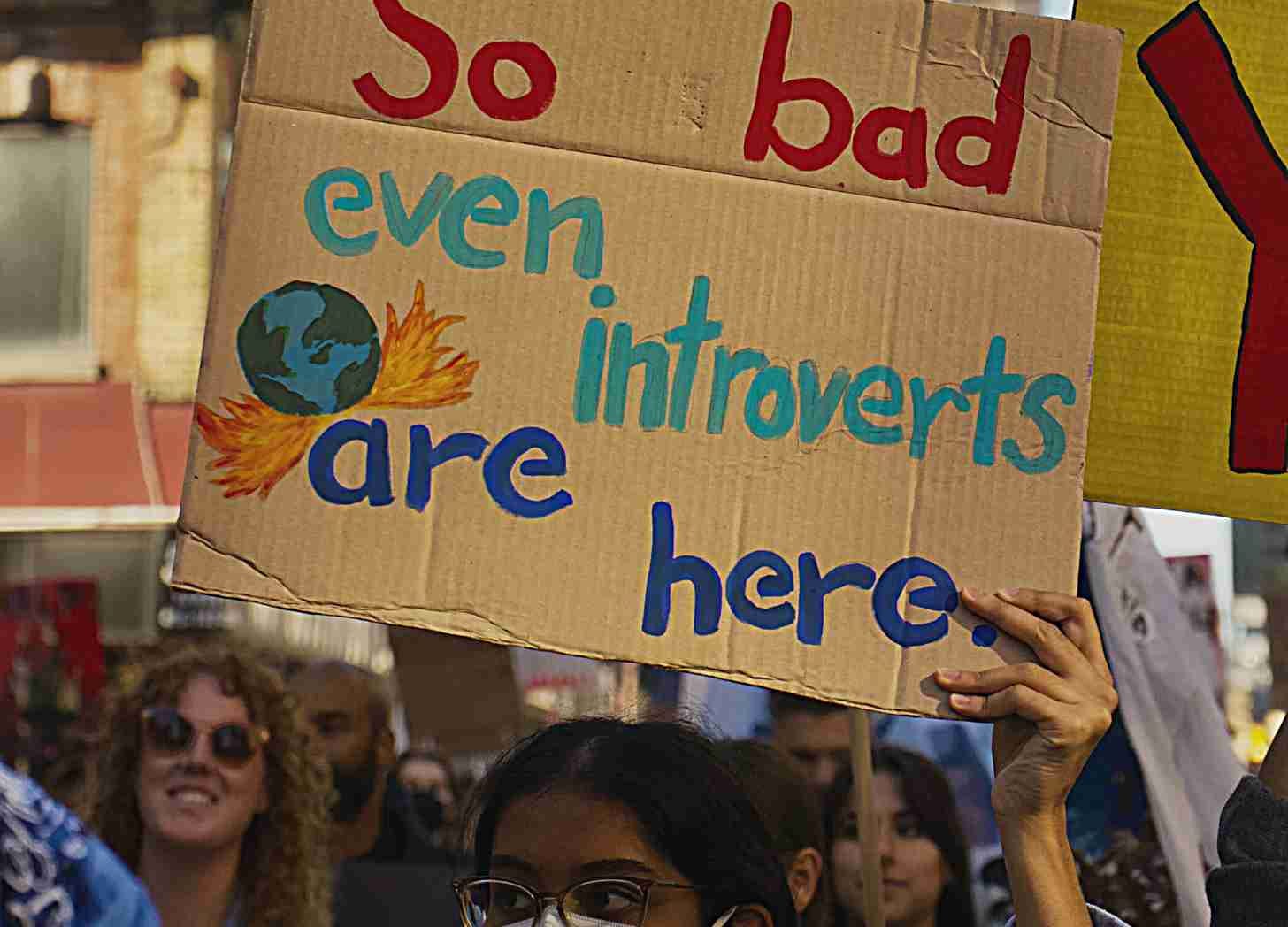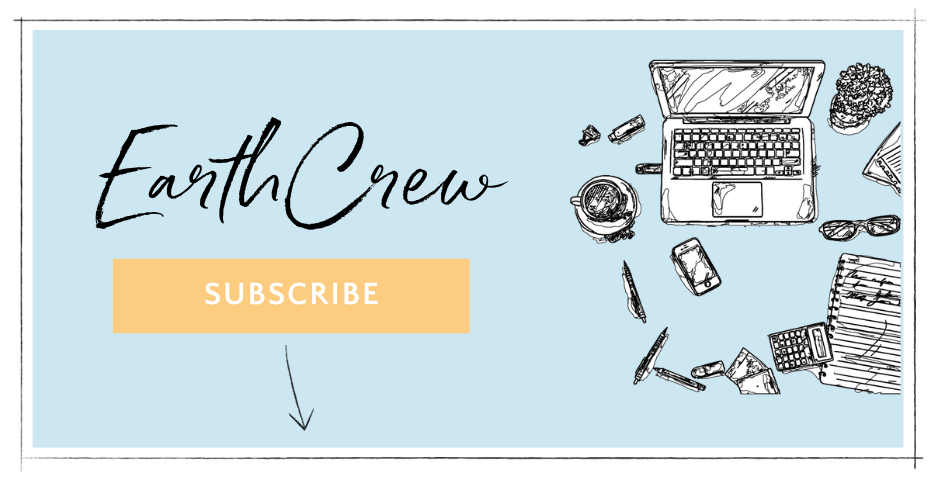LAUNCH: What Climate Questions Keep You Up At Night?
Welcome to EarthCrew. Here are the questions that keep me up at night. What are yours? Introduce yourself here!
Some urgent questions are burning inside me and I want to explore them with a community. That’s why I’ve started the EarthCrew blog. Welcome to the very first issue. I can’t wait to start the conversation.
Here’s what’s keeping me up at night
As corporations hellbent on burning even more fossil fuels heat up our beautiful planet, urgent questions are burning inside me. Facing them alone is exhausting. By building a community of thoughtful, determined readers on EarthCrew, I hope to make exploring them into a rich and vital conversation.
How do we find shelter and sanctuary in an age of climate disruption?
Who are the activists, visionaries and village builders dismantling the old world and creating the new – and how exactly do they do it? What more can we each do to shift things faster?
What are the climate solutions? Great outlets already cover clean energy and tech. That’s not my bag. I want to delve into creativity, collaboration, accountability, consent, reciprocity, celebration, vision, and determination.
How can we build our courage to face what’s coming, and our empathy and power to stand for climate justice? How can we renew our energy to do this work – and become more deeply connected with nature and community?
What are the big climate stories the media is missing – especially the ones about how to actually stop the corporations hellbent on destroying everything?
I have a big pile of notes and half-written stories on these questions, and it’s time to dig them out of my notes app, dust them off, and push them into the light of day.
By building a community of thoughtful, determined, creative readers on EarthCrew, I hope to make finishing and sharing these stories into a rich and vital conversation.
For launch, the email newsletter content is 100 per cent free. Get every issue fresh in your inbox by subscribing now.
It’s hot – but some people are getting rich from it
A few days ago, NASA air pollution scientist Ryan Stauffer tweeted a chart showing absurd +20°C temperature anomalies as Europe rung in the new year with unusual winter warmth and record-crushing nighttime highs.
“Speechless,” he said. “The climate implications are hard to ignore.”
He’s one of many scientists, previously cautious about predictions, now gobsmacked by the suddenness and ferocity of recent events.
The balanced atmosphere that supports the beautiful, astounding diversity of life on Earth is becoming chaotic. But in 2022, as people were harmed by floods, fires, and storms, the executives and boards of fossil fuel corporations doubled down on their polluting business model.
They reaped obscene profits from skyrocketing coal and gas prices off the back of Vladimir Putin’s fossil-fuel-funded war. The International Energy Agency projected net income for oil and gas producers will have doubled in 2022 to an alarming and obscene US$4 trillion.
The fossil fuel industry is feasting on hundreds of billions of dollars in subsidies and windfall profits while household budgets shrink and our planet burns. Polluters must pay. ― U.N. chief Antonio Guterres
Rather than accepting the need for change, in 2022 big polluters imposed the largest-ever annual rise in pollution, more than offsetting 2021’s pandemic-induced decline. They’re planning a huge expansion of oil and gas extraction – and are turning to increasingly absurd greenwash to cover for their greed. Let’s remember that just 100 companies caused 71% of climate pollution.
We are in a desperate endgame against them and our only hope is for people to unite to protect nature and each other against ridiculous odds. We will each need to call on all the creativity, collaboration and determination we can muster.
“Hope is not a lottery ticket you can sit on the sofa and clutch, feeling lucky. It is an axe you break down doors with in an emergency. Hope should shove you out the door, because it will take everything you have to steer the future away from endless war, from the annihilation of the earth's treasures and the grinding down of the poor and marginal... To hope is to give yourself to the future - and that commitment to the future is what makes the present inhabitable.”
― Rebecca Solnit, Hope in the Dark
When I started out in journalism 20 years ago, I was desperate to cover climate change.
My journalism has been published and broadcast in the Sydney Morning Herald, The Age, The Big Issue, Inside Sport, and on ABC Radio. My 44-day solo mountain walk through the Australian Alps which burned up behind me was a feature in Australian Geographic.
But back then editors were cautious about climate change coverage, and I lost patience and turned to more direct advocacy. Now I've been a full-time climate activist for at least 15 years.
As communications and mobilisation lead with the Australian Conservation Foundation and climate justice campaign director for GetUp, I've helped hundreds of thousands of people take literally millions of actions – holding fossil fuel corporations accountable, advocating to decision-makers, and organising communities. I am also a climate leader with the Climate Reality Project.
Together, campaigns I’ve been a part of have won: a huge climate vote in federal elections; new laws to support clean energy; the ending of billions in subsidies for polluting fuels; and backing in First Nations people who are leading campaigns against nuclear waste and fracking.
What’s inside EarthCrew climate change newsletter
When you subscribe, you’ll get a mix of quick analysis, reporting, and storytelling about people making change, plus the occasional essay or podcast about hot campaigns or climate adaptation – helping you make sense of the most critical issue of our time.
Most climate content covers problems, without analysis of who caused them, why, and how to change things. There’s little on what to actually do. I promise to flip this.
Sometimes I’ll deconstruct the skills and strategies of collective action – because the billionaires are not going to save us from climate change! The markets won’t save us. Even renewable technologies – critical as they are – are not the most important thing.
It’s people who show up, speak out and act together who will change things – and limit the destruction wrought by climate pollution to the maximum extent still possible.
And it’s a hard truth that no matter how rapidly we force big polluters to stop, we are in for serious disruption and uncertainty this decade. For many people, the catastrophe is already rolling through their lives. That’s why I’ll also focus on communities preparing for or rebuilding from disaster – and explore practices and processes for transformational change.
I hope to meet readers who are powerful advocates in your own communities. And I hope the stories challenge and inspire you to use your gifts and vision to push for faster change.
Thanks so much for reading this inaugural issue of EarthCrew.
I’d love to know what your burning questions are. Leave a comment on this post and let’s start a conversation.
Kathryn









If we haven’t met yet, I’m Kathryn. Hello and welcome to new subscribers to EarthCrew. I am stoked you’ve chosen to support my little project with the most precious of all things – your attention. Here's a bit about me. I'd love it if you leave a comment introducing yourself here too.
I believe people power, collective action and visionary collaboration are our most powerful tools to solve the climate crisis. I’m a full-time climate activist. I’ve worked for 20 years with top campaign groups like the Australian Conservation Foundation and GetUp, and the hundreds of thousands of people in their communities.
Now my day job is as Strategy Director with Climate Action Network Australia, helping 160 amazing organisations collaborate for collective impact, and linking to our global network of 1900 groups in 130 countries. I like to wander in the mountains and cook amazing campfire breakfasts. I have Danish and Scottish heritage and was born and live on Wurundjeri country in south-eastern Australia.
I'm curious about how to scale up collective action, how to avoid repeating destructive patterns of modernity, and how to hold fossil fuel corporations accountable. How about you?